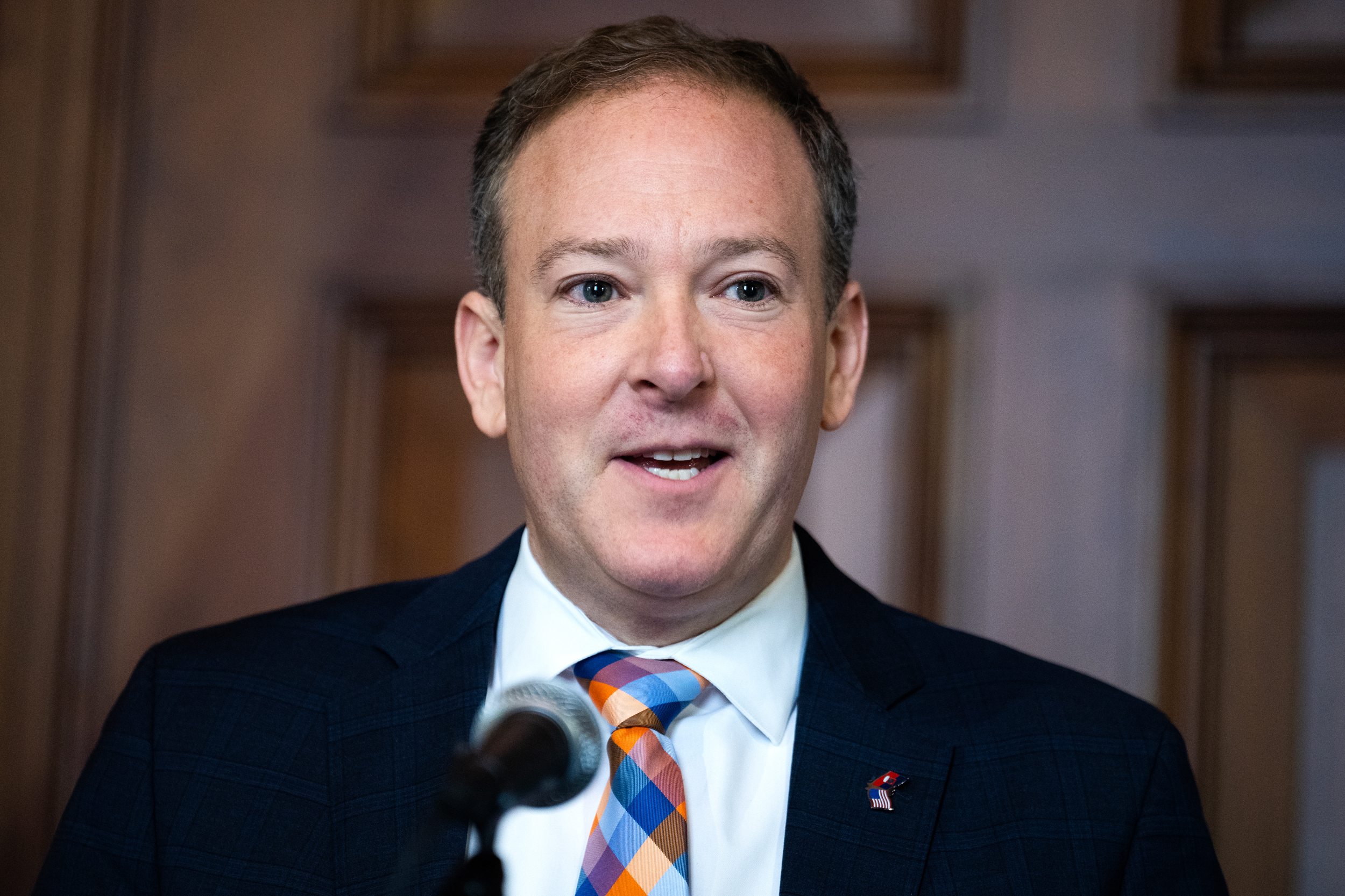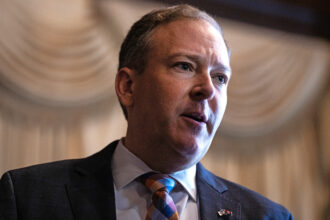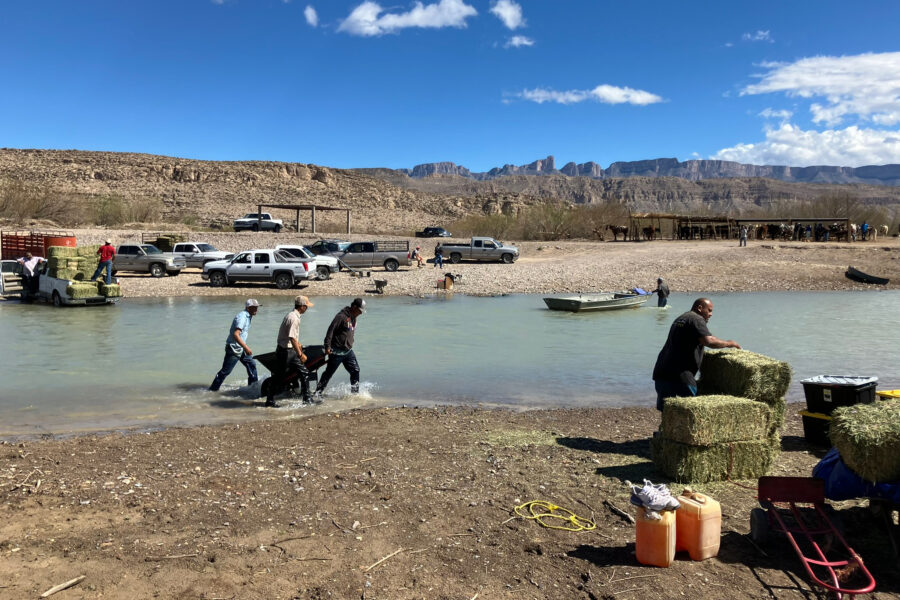WASHINGTON—EPA Administrator Lee Zeldin on Monday defended his agency’s abrupt cancellation of billions of dollars in federal clean energy and environmental justice grants, insisting the EPA retains discretion to terminate awards despite a federal court ruling that sharply questioned the legal basis for the move.
Facing mounting scrutiny, Zeldin held a press conference ahead of his Earth Day trip to the U.S.-Mexico border to address sewage contamination. He said the terminations were a responsible effort to prevent “lighting billions of dollars on fire” and repeated his claims of program mismanagement and political favoritism, which have been challenged in court.
The money at issue is the $27 billion Greenhouse Gas Reduction Fund (GGRF) initiative created under the Inflation Reduction Act to accelerate clean energy lending and community investment.
Earlier this year, Zeldin’s EPA rescinded eight major grant awards—including an award to a nonprofit President Donald Trump claimed was “headed up” by former Georgia state senator and gubernatorial candidate Stacey Abrams—citing concerns about conflicts of interest and program “misalignment” with agency priorities. As Inside Climate News previously reported, “Abrams formerly played only a side role, as a counselor, to one nonprofit, Rewiring America, that was part of a larger coalition, Power Forward Communities, which included other large nonprofits like Habitat for Humanity and United Way. The groups planned to finance large-scale home decarbonization, and no money was going to Abrams.”
In an April 16 opinion granting a preliminary injunction, U.S. District Judge Tanya S. Chutkan challenged the agency’s rationale, saying the EPA failed to produce “credible evidence” of fraud or statutory violations and ruled the terminations likely violated federal administrative law.
“EPA Defendants did not and have not identified a violation of any applicable regulation or any of the grant’s terms,” Chutkan wrote. “Only that there are concerns about potential conflicts of interest.”
Chutkan described the EPA’s actions as “arbitrary and capricious,” noting the agency failed to provide individualized reasoning for terminating each grant and appeared to shift its justification from fraud to administrative discretion.
“Congress speaks through the laws it enacts,” Chutkan added. “EPA has terminated programs established through lawfully enacted congressional appropriations without any basis in statutory authority.”
Zeldin pushed back against that interpretation during the press briefing. “This is a contract dispute. It belongs in the Court of Federal Claims,” he said, disputing the district court’s jurisdiction and defending the terminations as legally justified. “The contracts have been terminated. We’re going through a closeout procedure. That decision was made based on a number of factors,” he said.
The legal fight has paralyzed implementation of two GGRF initiatives: the National Clean Investment Fund and the Clean Communities Investment Accelerator. The projects were expected to deploy billions of dollars to community lenders and disadvantaged communities. Their cancellation has disrupted ongoing work and threatened dozens of clean energy projects nationwide.
Zeldin singled out a $50 million grant to the Climate Justice Alliance, saying the group’s advocacy had strayed from the EPA’s core mission. “‘Climate justice runs through a free Palestine,’” Zeldin said, referencing the group’s messaging. “But if you’re going to spend $50 million in the name of environmental justice, it should go directly to remediating pollution.”
Responding to the EPA’s grant cancellation, executive director of the Alliance, KD Chavez, issued a statement, saying: “The Administration continues its attacks on working class communities, rural and urban families” with its cancellation of the Alliance’s grant. The statement decried the Biden administration’s failure to timely disburse the grant funding and leaving “the decision in the hands of the Trump administration.”
Zeldin further argued that “environmental justice” initiatives had in some cases devolved into “forced discrimination,” reiterating his support for “clean air, land, and water for all Americans” while rejecting what he called politically motivated funding.
The Trump administration has characterized environmental justice as discrimination, emphasizing that each dollar invested should work for every American. However, the funds provided under the Biden administration’s environmental justice guidelines aimed to address the environmental-health consequences of polluting industries that historically exposed people of color and lower-income residents to contamination and other environmental ills.
Separately, the court found no basis for claims of “programmatic fraud, waste, or abuse” as grounds for the terminations. It noted that under federal regulations, grant funding cannot be withheld absent proof of noncompliance, statutory conflict or credible evidence of criminal wrongdoing.
None of the termination letters issued by EPA, according to the court, satisfied those standards. They cited only generalized concerns, without accompanying documentation or investigative findings.
Zeldin also confirmed Monday that the EPA is reevaluating the “Waters of the United States” rule in alignment with the Supreme Court’s Sackett decision limiting the agency’s ability to protect wetlands. He announced six forthcoming listening sessions with the Army Corps of Engineers to gather public input and develop “a clearer and more consistent regulatory framework.”
Operational reforms also top Zeldin’s agenda. He cited efforts to reduce the agency’s real estate footprint—announcing the removal of EPA staff from seven floors of the Ronald Reagan Building in downtown Washington, expected to save $18 million—and called for the adoption of AI tools to streamline regulatory processing.
“We should be utilizing AI inside this agency,” Zeldin said, suggesting automation could improve grant oversight, expedite public comment responses and help shrink a backlog in chemical reviews.
Yet critics warn that the abrupt GGRF cancellations risk undermining the agency’s statutory obligations under the IRA and eroding trust in public grant processes.
The preliminary injunction remains in effect as the court weighs the legality of the terminations.
About This Story
Perhaps you noticed: This story, like all the news we publish, is free to read. That’s because Inside Climate News is a 501c3 nonprofit organization. We do not charge a subscription fee, lock our news behind a paywall, or clutter our website with ads. We make our news on climate and the environment freely available to you and anyone who wants it.
That’s not all. We also share our news for free with scores of other media organizations around the country. Many of them can’t afford to do environmental journalism of their own. We’ve built bureaus from coast to coast to report local stories, collaborate with local newsrooms and co-publish articles so that this vital work is shared as widely as possible.
Two of us launched ICN in 2007. Six years later we earned a Pulitzer Prize for National Reporting, and now we run the oldest and largest dedicated climate newsroom in the nation. We tell the story in all its complexity. We hold polluters accountable. We expose environmental injustice. We debunk misinformation. We scrutinize solutions and inspire action.
Donations from readers like you fund every aspect of what we do. If you don’t already, will you support our ongoing work, our reporting on the biggest crisis facing our planet, and help us reach even more readers in more places?
Please take a moment to make a tax-deductible donation. Every one of them makes a difference.
Thank you,













